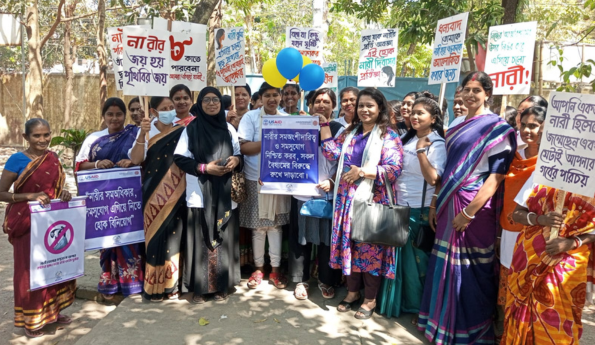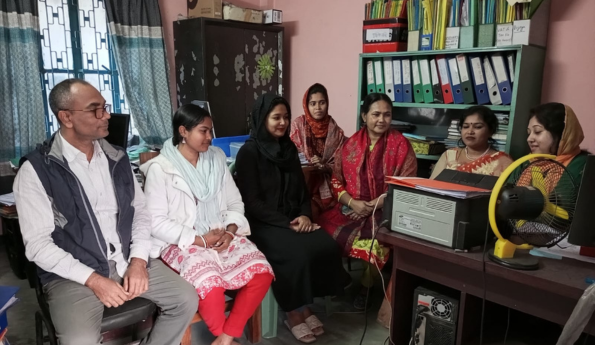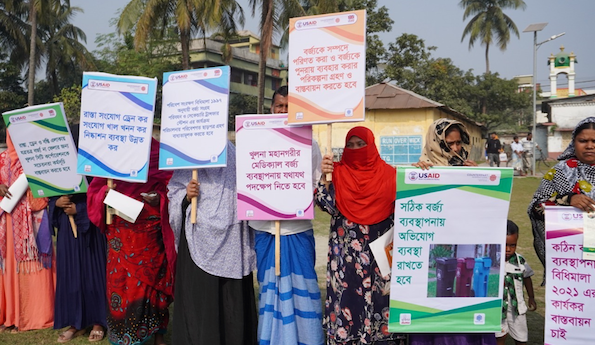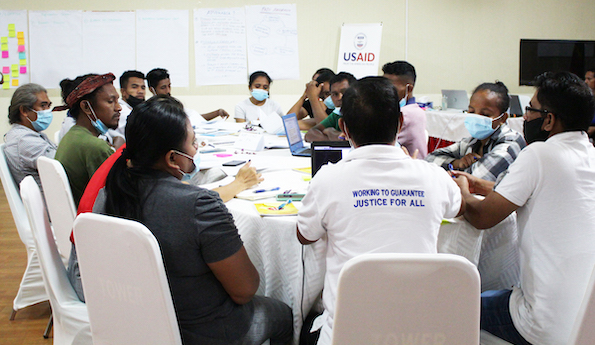Health is an important component of all of Counterpart’s projects around the world. We advocate for better government policies around public health provisions, we support improved nutrition and access to clean water as part of our school feeding programs, and we support climate resiliency projects in helping to create a cleaner, healthier world for the next generation. This story from our Bangladesh team shows how we are working to improve public health in Dhaka by supporting citizen engagement.
Advocacy for public health in Bangladesh
In Dhaka, 6,000 tons of solid waste are produced every day. Of that, approximately 1,600 tons go uncollected due to a lack of proper waste removal facilities. A disproportionate amount of this waste ends up near slums, or lower income neighborhoods. Over time, these slums have become de facto landfills, with waste piling up, attracting pests and disease-carrying bugs, and leaking into the water supply for people who live nearby. And people are getting sick as a result.
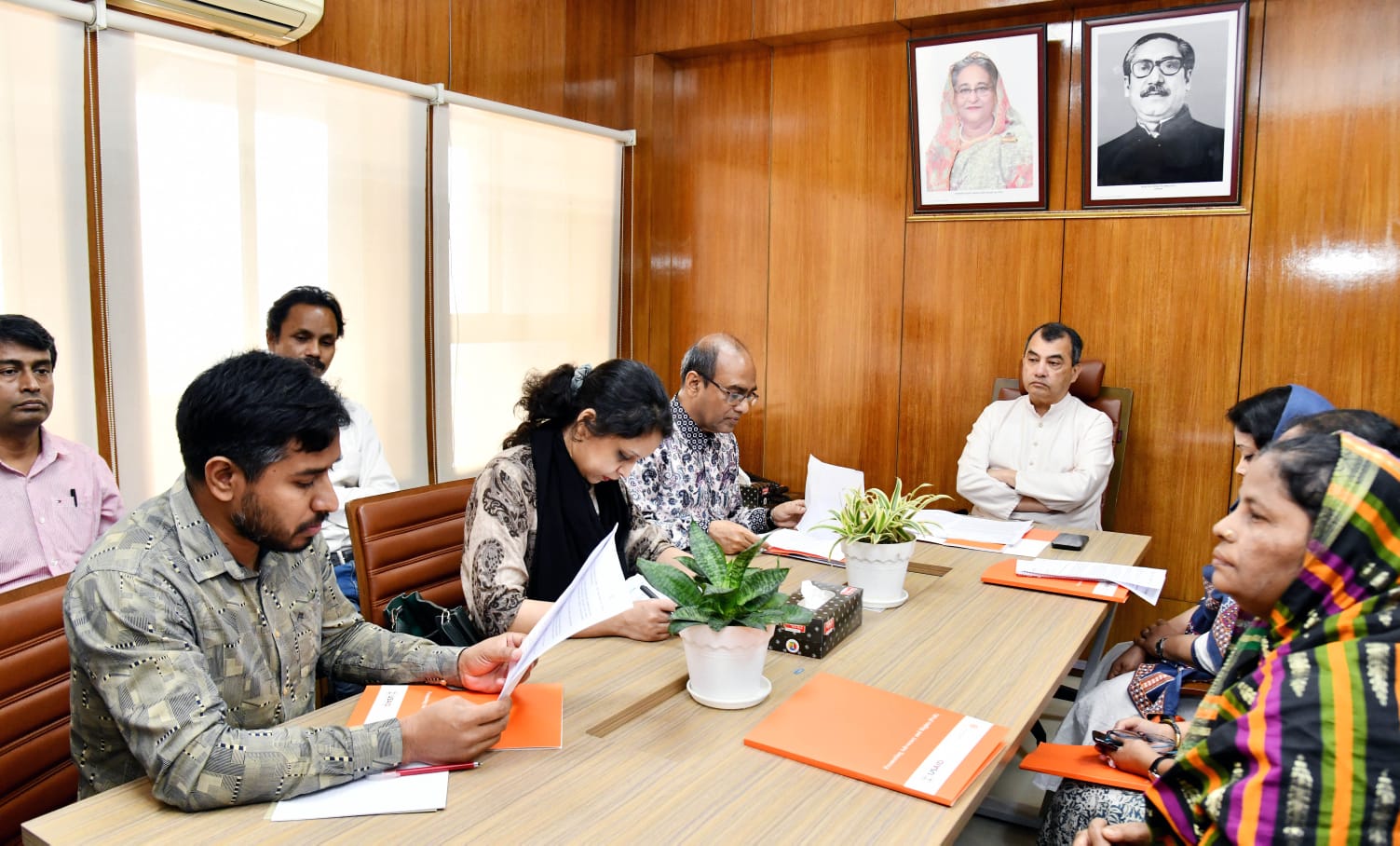
The Dhaka Calling team present their roadmap for sustainable solid waste management to the Minister of the Environment, Forest, and Climate Change, Saber Hossain Chowdhury, in March 2024.
Kidney disease, asthma, tuberculosis, skin disease, breathing problems, and even cancer are far too prevalent for people living in these slums. Many people are too sick to work and can’t afford proper medication or antibiotics. The pollution created by the lack of proper waste management services by the government has become both a public health and economic crisis.
Counterpart’s Promoting Advocacy and Rights program works closely with one local civil society organization, the Dhaka Calling Project, who are fighting for proper implementation of waste management laws in a sustainable manner. Building on Counterpart’s capacity building efforts and trainings around the value of evidence-based government outreach, they are also advocating for improved health policies for lower income citizens.
Thanks to this effort by civil society, the Ministry of Environment has committed to increase community-led fertilizer production from organic waste to create cleaner and healthier environments across Bangladesh.



